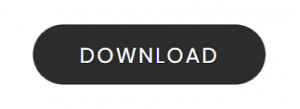Unit 1 – CBT exercises for self help.
HOW TO CHANGE YOUR MOOD | CBT THOUGHT RECORD.
Download the worksheet below.
CBT worksheets are very important psychology tools.
In this programme we ask you to complete these as CBT homework.
You can use CBT self-help worksheets to discover underlying thoughts and thought patterns. CBT activities can take many forms. Some of the best CBT interventions are cognitive behavioral therapy exercises and handouts.
CBT can be effective whether you undertake it alone or with the guidance of a counsellor or therapist. CBT handouts and cognitive behavioral therapy worksheets may be a part of therapy or they may be something you complete on your own in order to gain a deeper understanding of the thoughts that are behind the behavioral patterns that you are trying to change. Either way, these CBT interventions can be a very useful part of your personal development process.
Actually sitting down and doing the work on the cognitive behavioral therapy worksheets is what will make these psychology tools work for you.
Doing cognitive behavioral therapy worksheets is actually the foundation of cognitive-behavioral therapy. Without actually doing cognitive behavioral therapy exercises on paper, the benefits of CBT are not as significant.
To view more worksheets click on the materials tab.
CBT worksheets.
Worry Exploration questions.
When people worry, they tend to imagine the worst thing that could possibly happen. In reality, these worries may never come true. What could happen isn’t the same as what will happen.
In the Worry Exploration Questions worksheet, we ask you to consider your worry versus reality. Through a series of Socratic questions, you are encouraged to explore the most likely outcomes for the worried-about situation, rather than the worst imaginable outcomes.
This worksheet can be helpful for challenging irrational beliefs during CBT. Each question is written to be simple enough for children, but deep enough for teens and adults.
Download the work sheet below.
CBT Thinking Errors.
Thinking errors, commonly known as cognitive distortions, are irrational beliefs that contribute to uncomfortable emotions and unwanted behavior. Children as young as 7 years old can benefit from cognitive behavior therapy (CBT) interventions, but it is important that the material is presented in an age-appropriate manner.
The Thinking Errors worksheet is a simple introduction to cognitive distortions. Using plain language and plenty of examples, this worksheet describes nine common thinking errors. These include mind reading, feelings as facts, blowing things up, and more.
Download the worksheet below.
CBT Practice exercises.
CBT therapists require you to have a strong understanding of the cognitive model before they attempt to identify and challenge your negative thoughts. This CBT worksheet will help you to understand the relationship between thoughts, emotions, and behaviors through the use of several examples and practice exercises.
Download both documents below.
Challenging Negative Thoughts.
In this worksheet, we ask you to take a step back and consider your situation and thoughts from a new perspective, such as that from a friend. Each question is designed to lead you to look at your negative thoughts more objectively.
Download the document below.

